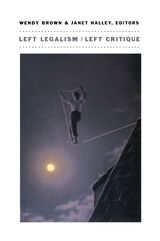
This book weighs alternative conceptions of the equal opportunity principle through an empirical and ethical exploration of the Federal law that directs local school districts to award special educational opportunities to students who are classified as learning disabled (LD). Mark Kelman and Gillian Lester consider the degree to which students with learning disabilities (rather than merely slow learners, the socially disadvantaged, or even the gifted) are entitled to benefits that might well prove advantageous to their classmates, such as extra time to complete an exam or expensive, individually tailored educational programs.
They examine the vexing question of how we should distribute extra educational funds: should we give them to those who have fewer material resources to begin with, to those who might benefit more than others from extra resources, or should we simply strive to create greater equality of outcome? The book exposes a growing conflict between those who want to distribute scarce resources on an individual basis to children who are in need whatever the reason, and those who seek to eliminate group inequalities.

Brown and Halley have assembled essays from diverse contributors—law professors, philosophers, political theorists, and literary critics—united chiefly by their willingness to think critically from the left about left legal projects. The essays themselves vary by topic, by theoretical approach, and by conclusion. While some contributors attempt to rework particular left legal projects, others insist upon abandoning or replacing those projects. Still others leave open the question of what is to be done as they devote their critical attention to understanding what we are doing. Above all, Left Legalism/Left Critique is a rare contemporary argument and model for the intellectually exhilarating and politically enriching dimensions of left critique—dimensions that persist even, and perhaps especially, when critique is unsure of the intellectual and political possibilities it may produce.
Contributors: Lauren Berlant, Wendy Brown, Judith Butler, Drucilla Cornell, Richard T. Ford, Katherine M. Franke, Janet Halley, Mark Kelman, David Kennedy, Duncan Kennedy, Gillian Lester, Michael Warner
READERS
Browse our collection.
PUBLISHERS
See BiblioVault's publisher services.
STUDENT SERVICES
Files for college accessibility offices.
UChicago Accessibility Resources
home | accessibility | search | about | contact us
BiblioVault ® 2001 - 2024
The University of Chicago Press









